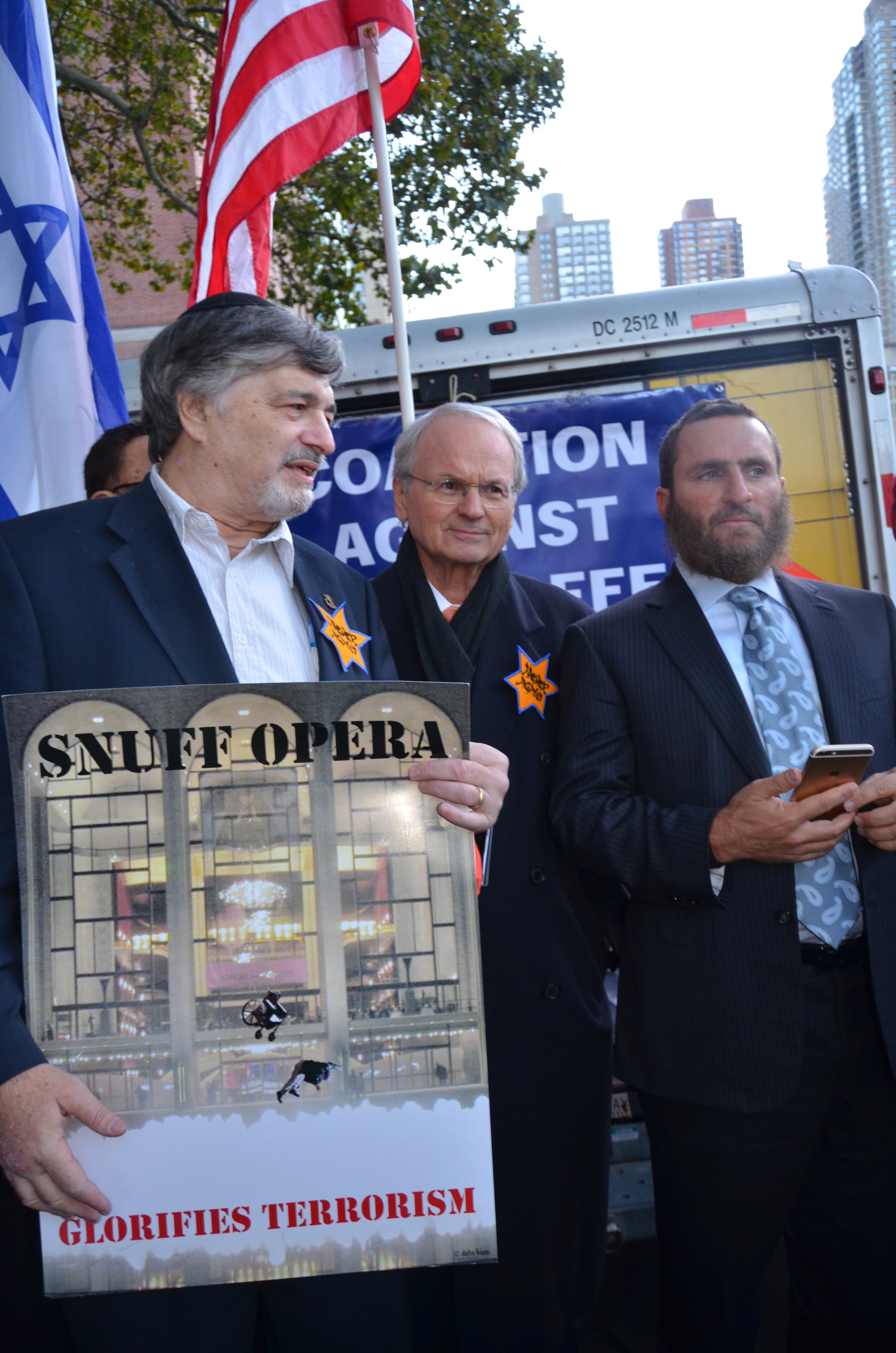Agence France-Presse October 21, 2014 6:00am
Met defies protests to stage ‘Klinghoffer’ opera
Defying picketers and audience disruptions, New York’s Metropolitan Opera has opened “The Death of Klinghoffer,” which explores the psyche of Palestinian hijackers who killed a wheelchair-bound US Jew.
Leading US composer John Adams operatized the 1985 seizure of the Achille Lauro cruise-liner as a way to explore the dueling grievances of Israelis and Palestinians. But “The Death of Klinghoffer” has outraged some Israel supporters who say it unduly humanizes murderers.
In an unusually tense display at the normally placid Lincoln Center, police stood guard in the lobby and set up barricades outside the entrance where picketers sat in wheelchairs in remembrance of Leon Klinghoffer, who was shot and thrown overboard by Palestinian hijackers demanding that Israel release prisoners.
The first act was briefly halted as an audience member repeatedly shouted, “The murder of Klinghoffer will never be forgiven!” Another person later yelled out a profanity and numerous spectators booed periodically during the opera, including when Adams himself came out during the curtain call, which mostly drew applause and a standing ovation.
The Met’s general manager Peter Gelb said he wanted to stage “The Death of Klinghoffer” because it was “one of the most powerful contemporary operas of the last 25 years” and insisted that the production clearly cast the killing as unjust.
“We will not allow this opera to be suppressed, since it is neither anti-Semitic nor a glorification of terrorism,” he wrote in a note in the audience’s playbill.
– No end to controversy –
Klinghoffer’s two daughters, allowed to present a counterpoint in the playbill, said that the opera “sullies the memory of a fine, principled, sweet man” who was on a Mediterranean vacation with their terminally ill mother.
“It presents false moral equivalencies without context and offers no real insight into the historical reality and the senseless murder of an American Jew,” they wrote.
“Terrorism cannot be rationalized. It cannot be understood. It can never be tolerated as a vehicle for political expression or grievance,” they wrote.
The Met said it hoped to start a conversation, with audience members encouraged to post their thoughts online.
In one nod to the criticism, the Met scrapped a planned broadcast of the opera in movie theaters around the world, with Gelb saying that the transmission would be “inappropriate at this time of rising anti-Semitism, particularly in Europe.”
“The Death of Klinghoffer” has been controversial since its premiere in 1991 at La Monnaie in Brussels but the latest production has come under particular fire. The Met is one of the world’s leading opera companies, New York has a large Jewish community and the production comes at a time of especially heated passions over the Israeli-Palestinian conflict.
The Met production did not shy away from current events, with the set designed by Tom Pye evoking the Israeli-built separation wall in the West Bank. When a chorus of Palestinians sing of their people’s struggles, key dates flash on the wall including 2014 — a potential reference to the recent Gaza bloodshed.
The production maintains some of the opera’s most provocative scenes, including when a gunman sings that “America is one big Jew” after Klinghoffer — played at the Met by British baritone Alan Opie — accuses the hijackers of being purely out for blood.
But one of the most criticized parts –in which a Jewish family in New Jersey chats glibly about the hijacking — was taken out soon after the 1991 premiere.
– Holocaust references –
Hundreds of protesters rallied outside the Met, with some holding images of a wheelchaired man ready to be thrown from the roof of the Lincoln Center.
“This has been an operatic Kristallnacht,” said Morton Klein, president of the Zionist Organization of America, referring to the orchestrated 1938 attacks against Jews in Germany and Austria.
“This is nothing less than an anti-Semitic, anti-Israel propaganda opera disguised cleverly in the high culture of an opera,” he said.
Political figures including former mayor Rudy Giuliani joined calls to stop the opera but the current mayor, Bill de Blasio, distanced himself.
De Blasio said that he worried “greatly” about anti-Semitism, especially in Western Europe, but added: “I don’t think an opera is what the focal point should be right now.”
“I think the American way is to respect freedom of speech, simple as that,” he told reporters.
